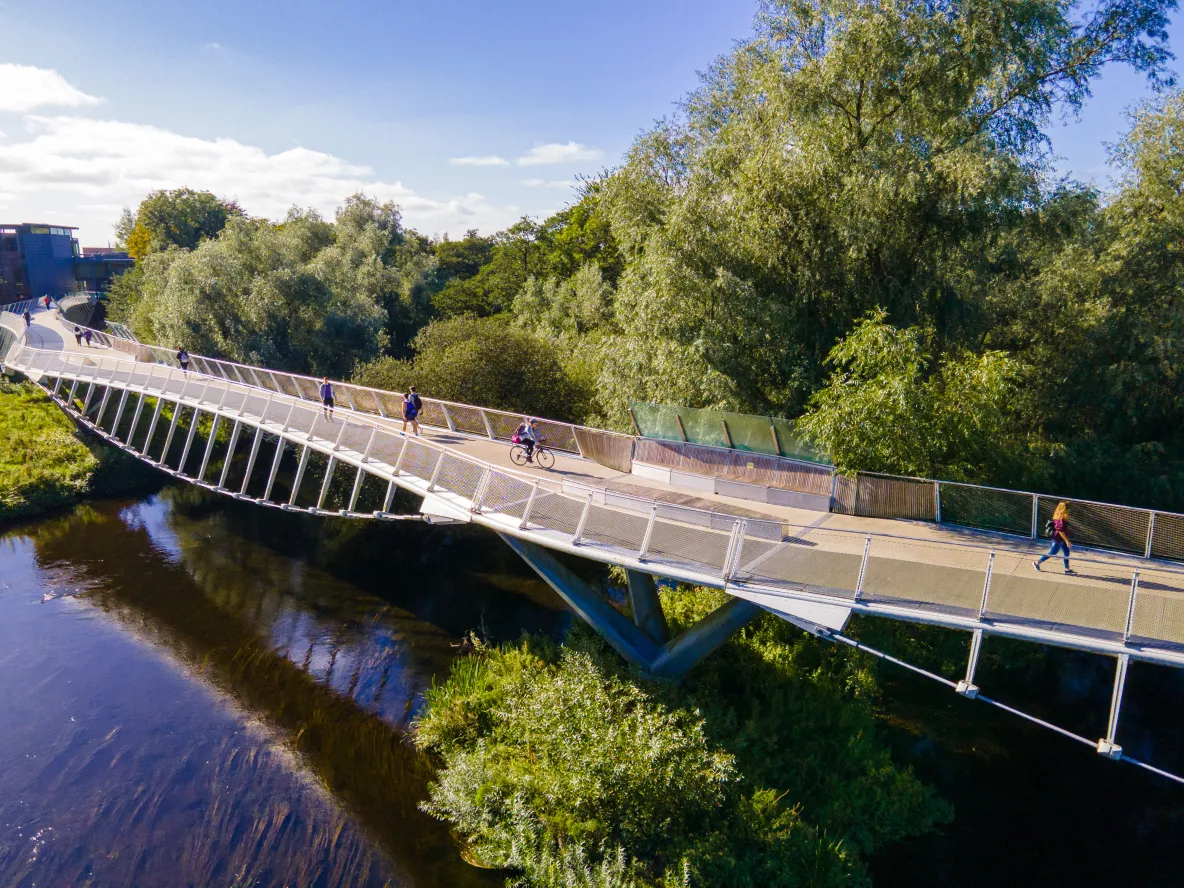
University of Limerick has unveiled a new plan to reach carbon neutrality by 2030.
The University has published its Climate Action Roadmap 2030, which charts a list of ambitious actions and projects to guide its progress towards becoming carbon neutral.
The plan also outlines UL’s commitment to becoming a sustainable university, an absolute alignment with the UN sustainable development goals (SDGs) and the underpinning of sustainability in all its forms across all aspects of the university and its campuses.
The commitments outlined in the plan include the retrofit of university buildings to upgrade heat, lighting, and energy sources; sustainable forms of transport only to be in place within and between campuses, with a focus on physical mobility where possible; and the sourcing of the majority of food consumed on the UL campus from within the bioregion and/or from university grounds.
Speaking about the UL Climate Action Roadmap 2030 at the Annual Presidents Dinner this weekend UL President Professor Kerstin Mey said: “The rapid pace of societal growth has caused us to exceed many of Earth’s planetary boundaries. We are now living in a deficit – consuming resources at a rate at which they cannot be replenished. The defining challenge of the 21st century will be to balance social progress and environmental boundaries.
“To become a sustainable university, we must first acknowledge that true sustainability will require permanent adaptive responsiveness to on-going change. At UL we intend to go beyond traditional curricula and research programmes, and actively explore change within our own ethos, practices, and operations.”
Some of the tangible projects outlined in the Climate Action Roadmap include:
- The development of an Earth Guild trade school offering upskilling programmes in sustainability practices for trade professionals
- A self-powered campus – UL will act as a testbed for the development and scaling of sustainable energy systems including on campus wind turbines and solar panels
- Retrofitting of university buildings to upgrade heat, lighting and energy sources
- The development of green houses and a campus farm to foster self-sufficiency practices
- Further rewilding and biophilic projects to integrate the campus community and the natural environment
- The development of a digital twin or digital model of the university campus infrastructure to allow for simulation and testing various scenarios and progress monitoring
- Sustainability programmes for both students and staff
- A mapping of UL research, education and policies to the UN SDGs
- By 2030 the majority of food consumed on the UL campus will be healthy and sourced from within the bioregion and/or from university grounds.
- By 2030 UL will only provide sustainable forms of transport within and between campuses, with a focus on physical mobility where possible.
- By 2030 UL will have piloted a sustainability led governance model and have shaped HE policy within Ireland.
University of Limerick is set to take a mission based methodological approach to achieving its sustainability goals. A mission orientated approach to innovation policies, governance and operational practices will support concrete action towards achieving the ambitions goals of the 2030 roadmap.
“UL is proud to announce our adoption of a mission-oriented approach to pursuing carbon neutrality by 2030. As part of our ongoing commitment to environmental sustainability and social responsibility, the university will actively engage in a comprehensive and collaborative effort involving our institution, our community, and our extended ecosystem to work towards this ambitious goal.,” explained Professor Mey.
“Engaging students in the work of a mission lab at UL will be crucial for the progression of this roadmap and for our transition to becoming a sustainable university. As members of the campus community and future leaders, UL students bring fresh perspectives, creativity and enthusiasm to problem solving.
“At UL we are determined to provide the space and mentorship for our students to develop into citizens who act as stewards of sustainability, both in their personal and professional lives,” added Professor Mey.
The 43 mission projects contained in the UL Climate Action Roadmap 2030 include completion dates, funding sources and owners with many of them already commenced and underway.
The plan also includes details of UL’s current carbon footprint as it relates to university buildings, energy, transport, waste, and procurement as well as carbon sequestration forecast for each mission contained within the roadmap.